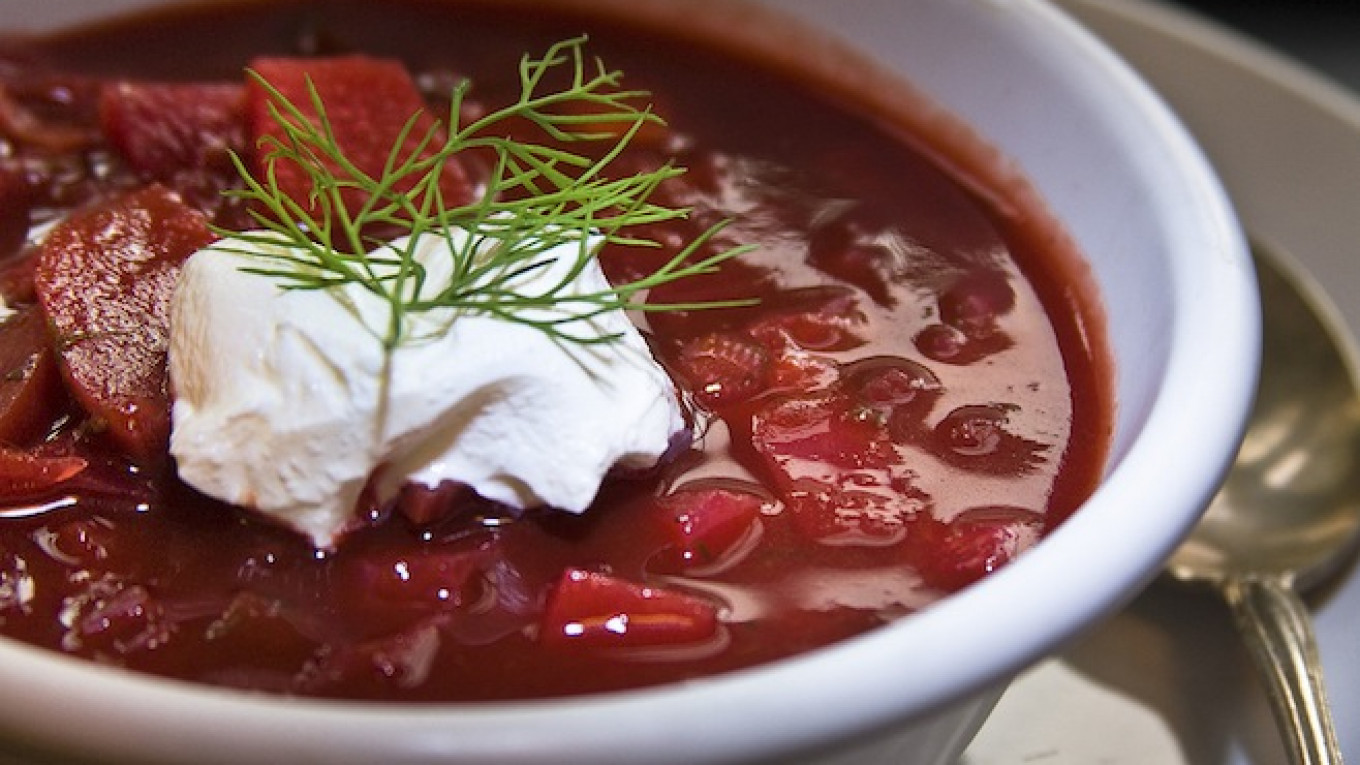More Russian restaurants are switching to local cuisine as the Kremlin's embargo on food imports and an economic downturn prompt them to change their menus, industry analysts told the Vedomosti newspaper Monday.
“The revival of Russian cuisine is now a fashionable restaurant trend,” said Andrei Zaitsev, managing partner at food service company RPCOM, which operates brands including Kolbasoff, Goodman Steak House, and Filimonova and Yankel, according to Vedomosti.
Russia banned imports of many Western food products last fall in retaliation to sanctions imposed over the Ukraine crisis. Given that most ingredients used by Russian restaurants were imported — 80 percent, according to Zaitsev — the food embargo shook the market.
Many restaurants responded by buying more local ingredients. Funny Cabany, a Moscow restaurant that specializes in meat, switched entirely to local suppliers for its international cuisine, its representative told Vedomosti.
The Filimonova and Yankel fish restaurant meanwhile substituted imported fish with red mullet from the Black Sea and oysters from Russia's far eastern island of Sakhalin, RPCOM chief executive Mikhail Makarov told the paper.
Others have gone the whole hog and introduced Russian dishes. Moscow's Novikov Restaurant and Bar, which serves Asian cuisine, brought in a Russian menu less than a month ago and has seen its popularity jump, its spokesperson told Vedomosti.
Local ingredients are also often cheaper than imports, helping to keep prices down — particularly important as Russia's recession forces people to rein in spending.
Many cheaper restaurants are switching not only to Russian but to Soviet dishes that can be made entirely from locally produced ingredients, RPCOM's Makarov told Vedomosti. In July and August, Soviet dishes made up 76 percent of Kolbasoff's menu, Zaitsev said, helping keep the average bill per head to about 1,100 rubles ($16).
A Message from The Moscow Times:
Dear readers,
We are facing unprecedented challenges. Russia's Prosecutor General's Office has designated The Moscow Times as an "undesirable" organization, criminalizing our work and putting our staff at risk of prosecution. This follows our earlier unjust labeling as a "foreign agent."
These actions are direct attempts to silence independent journalism in Russia. The authorities claim our work "discredits the decisions of the Russian leadership." We see things differently: we strive to provide accurate, unbiased reporting on Russia.
We, the journalists of The Moscow Times, refuse to be silenced. But to continue our work, we need your help.
Your support, no matter how small, makes a world of difference. If you can, please support us monthly starting from just $2. It's quick to set up, and every contribution makes a significant impact.
By supporting The Moscow Times, you're defending open, independent journalism in the face of repression. Thank you for standing with us.
Remind me later.






